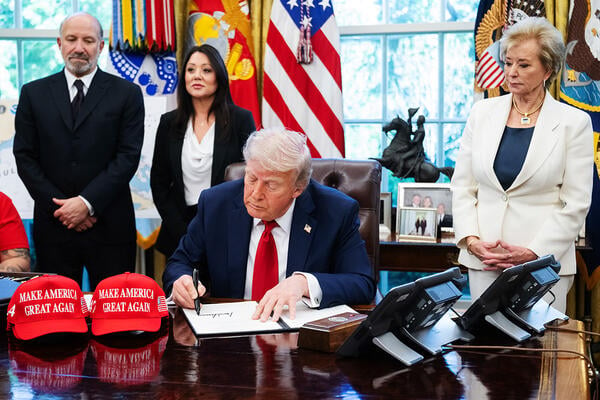Many companies contribute to the climate crisis and make a profit doing so. As consumers and governments pressure them to reduce their carbon emissions, they look for ways to make themselves appear environmentally friendly. This is called green marketing.
As a journalist, you need to learn to spot what a business really means by its green marketing.
Greenwashing is when a brand makes itself seem more sustainable than it really is, as a way to get consumers to buy their product. For example, let’s look at fashion, an industry that is responsible for between 2 and 8% of global greenhouse gas emissions.
In the absence of environmental legislation around the fashion industry a business might get themselves certified under a sustainability certification scheme — these are standards developed by governments or industry groups or NGOs to measure such things as energy efficiency or processes that are low carbon or carbon neutral. There are more than 100 different such certification programs.
Companies tout these certifications. But a 2022 study by the Changing Markets Foundation (CMF) found that the standards set by the majority of the 10 or more popular certification initiatives for the fashion industry aren’t difficult to meet and lack accountability.
Artificial claims about sustainability
Fast fashion relies on cheap synthetic fibers, which are produced from fossil fuels such as oil and gas. And while you might assume that clothing with labels such as “eco” or “sustainable” might have fewer synthetics, you’d unfortunately be wrong.
Another study by CMF found that H&M’s “conscious” clothing range, for example, contained 72% synthetics — which was higher than the percentage in their main collection (61%). And it’s not just H&M. While the same study found that 39% of products made some kind of green claim, almost 60% of these claims did not match the guidelines set out by the UK Competition and Markets Authority.
The same is happening in the meat and dairy industry. Companies say they are reducing their environmental footprint by engaging in “regenerative agriculture”, a farming approach that aims to restore and improve ecosystem health. They argue that it reduces greenhouse gas emissions and helps store carbon in the soil.
But relying on carbon storing in soil is not enough. An article in Nature Communications found that around 135 gigatonnes of stored carbon would be required to offset the emissions that come from the agriculture sector. This is roughly equivalent to the amount of carbon lost due to agriculture over the past 12,000 years, according to CMF.
But companies grab onto these empty promises, perhaps knowing that the general public might only see regenerative agriculture and other “green narratives” as promising.
Look for real solutions to climate change.
For example, Nestlé tells their customers that it is addressing the carbon footprint of the agriculture industry by supporting regenerative agriculture, stating on its website that in 2024, some 21% of the ingredients they source come from farmers adopting regenerative agriculture practices.
When you understand that regenerative agriculture is not the solution it has been made out to be, only then can you see through Nestlé’s branding.
So how can you spot greenwashing?
Let’s say you saw a press release from a company in an industry that has historically relied heavily on fossil fuels. It tells its readers that it plans to be carbon neutral by a certain date, or that it’s using recycled materials for a large portion of its production, or that its future is “green”.
You might first wonder, is this an example of how companies are moving away from fossil fuels and towards a green future? How can you tell?
1. Be skeptical.
When something has to tell you that it is green, it might not be. Start your investigation right there.
For example, if you were looking at Nestlé’s regenerative agriculture campaign, you would need to find out what regenerative agriculture is and how much it is indeed reducing greenhouse gas emissions. You can do this by starting with a good Google search: e.g “regenerative agriculture and greenhouse gas emissions”.
Once you click on a number of articles that report on this topic, you’ll be able to read about the different studies and data into the topic. Follow the sources used when an article cites a study or data. The article should hyperlink or list the sources. But those hyperlinks might take you to other secondary sources — other articles that cited the same data.
For example, an article might cite this statistic: sustainability certifications increase consumer willingness to pay by approximately 7% on average. The article might cite as the source this study published in the journal Nature. But that article isn’t the original source of that data. It came from a 2014 study published in the Journal of Retailing.
So try to find the primary source and see how credible or reputable it is. Who conducted the research in the first place?
If you wanted to find out what H&M’s “conscious” range really meant, you would start by looking at H&M’s website and reports to look further into their claims. Then, follow those claims.
2. Research the wider industry.
Whether you’re reporting on fashion, agriculture or any other industry, look into where its emissions are coming from, which companies are claiming what and what the evidence says needs to be done in order for these industries to reduce their emissions.
Providing context is important. What percentage of global greenhouse gas emissions is this industry responsible for? Is it getting better or worse? What legislation is in place to reduce emissions from these industries? In order for you and your audience to understand the greenwashing of any company, this background information is vital.
3. Go straight to the company.
Once you’ve conducted some initial research, follow up with the company if you are using it as an example or focus for your article. On Nestlé’s website, for example, you can find contact details for their communications, media or PR department. Send them an email saying something like the following:
“I am writing an article on regenerative agriculture and I’ve found some studies that show that soil sequestration through these practices are in fact not enough to be a real climate solution. Can you please provide me with a comment on what Nestlé thinks about this?”
They might not answer, but that also says a lot. If they don’t reply to you after one or two follow-up emails, you might try calling them.
If you try several times and in different ways to contact them and they failed to respond, you can state that in your article. That way your readers know you made the effort.
Claims from corporations that they are doing all they can to help the planet are easy to make. But if we really want to slow down climate change, significant efforts have to be made. And it is the role of journalists to hold companies to account for the claims they make.
Questions to consider:
1. What is “greenwashing”
2. What is one example of greenwashing?
3. What criteria do you use when deciding whether to buy a company’s product?




